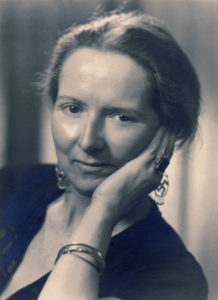
I have always, however, been pleasantly struck by the understanding I have encountered, as a Hitlerite, among orthodox Hindus of all castes. I have related the episode of the young Shudra, with the beautiful historical name of Khudiram, who showed more sense of true values—and a more accurate appreciation of Adolf Hitler’s role—than all the democrats of Europe and America put together. I have quoted Satyananda Swami, the founder of the Hindu Mission, for whom the creation of a common Hindu front against the clutches of Islam, Christian missionaries, and Communism counted even more than strict observance of orthodoxy.
The latter held our Führer to be the ‘incarnation of Vishnu: the only one in the West.’ I could multiply my recollections and recall the admirable Brahmin of Poona, Pandit Rajwadé, so versed in the work of Nietzsche as in the sacred texts. He professed the deepest admiration for the ‘Chakravarti king (universal ruler) of Europe’ who had come to ‘re-establish the true order’ in a world adrift.
I could relate the words of another unusual man—less literate perhaps, but gifted with a strange power of clairvoyance—whom I met at the beginning of the war in a friendly family of which he was the guru or spiritual master. This wise man said to me: ‘Your Führer can only be victorious because the gods themselves dictate his strategy. Every night he divides himself into two and comes here to the Himalayas to receive instructions.’ I wondered what Adolf Hitler would have thought of this unexpected explanation of the German army’s victories. I then said to the holy man:
‘It is, in this case, unquestionable that he will win the war.’
‘No’ he replied, ‘for there will come a time when his generals will reject his divine inspiration and disobey him—will betray him!’
And he added:
‘It cannot be otherwise; if he is an Incarnation, he isn’t the supreme Incarnation—the last of this cycle—Alas!’ [1]
______ 卐 ______
How could I forget the general joy in Calcutta—and no doubt in the rest of the peninsula—at the news of Adolf Hitler’s troops entering Paris or, some twenty months later, at the announcement of the lightning advance of our allies, the Japanese, to the Assam border and beyond?
The kids themselves, newspaper sellers, their faces radiant, triumphantly threw to the public the names of the captured cities—Kuala Lumpur, Singapore, Rangoon, Mandalay, Akyab, Imphal in Indian territory—one after the other. The colonial government had banned listening to German radio. People who could hear German were listening to it illegally. I know Hindus who listened to it without understanding a word just to hear the voice of the Führer. They felt that the One who spoke to the Aryan world in an ‘Indo-European’ language unknown to them was also speaking to them—at least to the racial elite of their continent.[2]
But that is still nothing. What is most extraordinary is that this cult of the Führer survived, in this country, the collapse of the Third Reich. I found it alive during my stay in India from 1957 to 1960 and I found it again, to my joy, and despite intensified Communist propaganda, in 1971: and this, I repeat, especially in the circles most faithful to Tradition.
The only justification for the praise of an Aryan leader, a stranger to India, lies not in the fact that the Hindu easily transcends moral dualism but in the reason for this fact. This is to be found in the Hindu’s attachment to Tradition, not elsewhere; in his acceptance of sacred knowledge with full confidence even if he hasn’t acquired it himself. It is in the name of this more-than-human science that he finds it natural that, under certain conditions, what on the average human scale would seem ‘evil,’ isn’t.
This worship of the Führer, surviving in India despite so much enemy propaganda well beyond the disaster of 1945 is, moreover, proof—if one needed one—that Hitlerism, stripped of its contingent German expression, is attached to the primordial or Hyperborean tradition of which Brahminism seems to be the most ancient living form. It is related to it by what has, despite the imposition of Christianity, survived in Germany in a very old and properly Germanic traditional form, deriving from a common source of the holy Arctic Fatherland of the Vedas and the Edda.
_____________
[1] Editor’s note: The ‘last incarnation’ according to tradition is Kalki.
[2] Editor’s note: Compare this holy euphoria with the way the Americans and the British reacted to Hitler’s divine voice! It needs to be iterated until it is understood: Christianity fried the brains of the Aryan man to the extent that, after the Second World War, he handed over their Abendland to the Jews! To save the white race from the anti-white war of extermination that the entire Abendland is suffering it is imperative to repudiate the religion of our imbecilic parents. If whites of modern times weren’t the greatest scum of all time, they would have been as euphoric about the German advance in Europe and beyond as these children untainted by the lethal Semitic-Christian poison.








